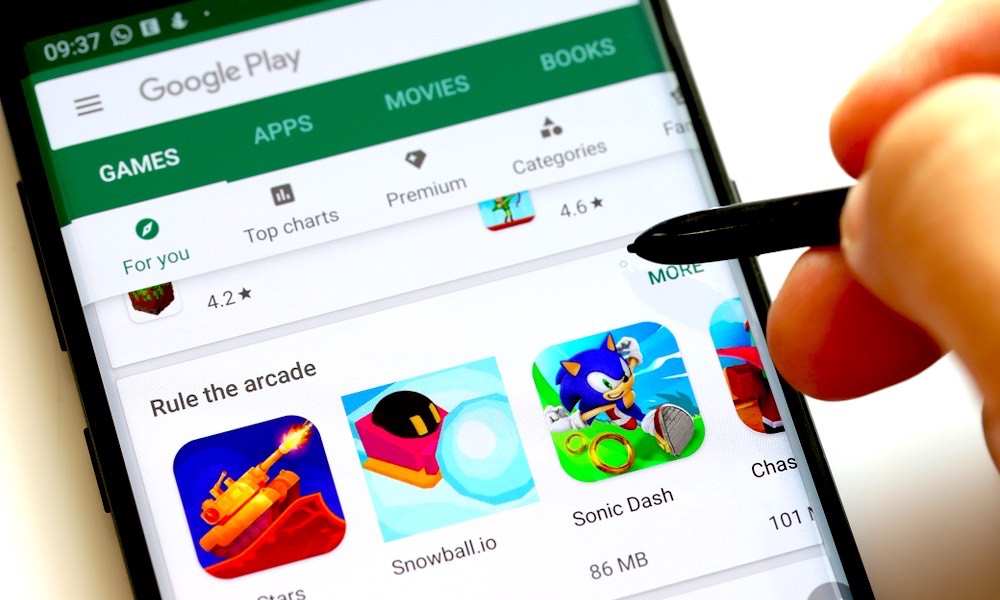Google Just Banned 600 Apps from Its Play Store – What About Apple?
 Credit: TY Lim / Shutterstock
Credit: TY Lim / Shutterstock
Toggle Dark Mode
Google is finally cracking down on apps in the Google Play Store that display overly disruptive or even malicious ads.
The Mountain View-based company announced on Thursday that it has removed nearly 600 apps for “disruptive ads.” That doesn’t mean apps that display lots of ads, but ones that specifically display them in a way that hampers a user’s experience.
For example, some apps can actually display a fullscreen ad when an Android user is attempting to make a phone call. That’s not only annoying, but can actually be dangerous if the user is in the midst of an emergency and is trying to dial 911.
Interestingly, a separate BuzzFeed News report indicated that the banned apps were downloaded by Android users a total of 4.5 billion times.
The same report also claimed that about 45 of those banned apps were created by a developer named Cheetah Mobile. That company, whose apps are not entirely absent from the Play Store, was notorious for putting out problematic apps.
More specifically, Cheetah Mobile was allegedly committing ad fraud, which is misrepresenting ads or using other underhanded tactics for the sole purpose of making money.
Google Play Store has had other problems in the past, including distributing apps that can actually damage a user’s device or useless apps that just entice users to download other useless apps.
While Google is making progress toward cleaning up its Play Store, it does admit that “malicious developers continue to become savvier in deploying and masking disruptive ads.”
The company does say that it’s beginning to deploy machine learning and other new ways to detect malicious apps.
Of course, Android users still need to exercise caution when downloading apps from the Google Play Store.
This is all in start contrast to the Apple App Store. While sketchy or malicious apps do occasionally end up on the App Store, Apple’s strict review process and developer guidelines help keep most of them out.
Apple’s guidelines specifically forbid overly disruptive ads. And, more than that, most malicious apps are kept at bay from the walled garden of iOS and iPadOS.
For users who are especially concerned about less-reputable apps on Apple devices, you can check out our guide on avoiding sketchy App Store apps.






